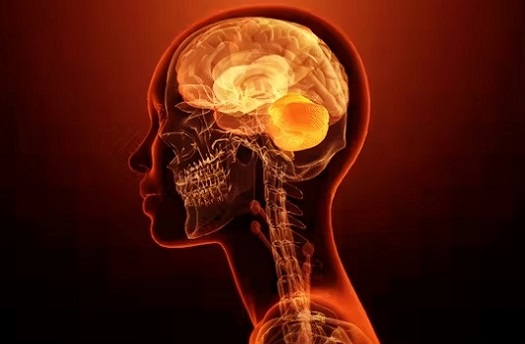Nikhil Prasad Fact checked by:Thailand Medical News Team Feb 08, 2025 2 months, 5 days, 1 hour, 41 minutes ago
Medical News: New Research Uncovers the Impact of Binge Eating on Brain Health
A groundbreaking study conducted by researchers from Florida State University and the University of Texas at Austin has revealed that intermittent overconsumption of a high-fat diet (HFD) can trigger brain inflammation in female rats, even without significant weight gain. This
Medical News report sheds light on how binge-like eating patterns impact brain function and may contribute to the development of eating disorders and obesity-related conditions.
 Intermittent High Fat Diet Triggers Brain Inflammation
The Study and Its Methods
Intermittent High Fat Diet Triggers Brain Inflammation
The Study and Its Methods
The research team aimed to investigate whether intermittent binge eating of HFD leads to neuroinflammation, similar to what has been observed in chronic overconsumption of unhealthy foods. Female Sprague Dawley rats were divided into three groups: one group received only standard chow (CHOW), another had continuous access to HFD (CONT), and the third had intermittent access to HFD (INT), mimicking real-world binge-eating behaviors.
The INT rats had restricted access to the high-fat diet at four-day intervals, allowing researchers to observe the effects of cyclical binge eating on brain inflammation. Brain tissues from all groups were analyzed for microglial reactivity using ionized calcium-binding adaptor molecule 1 (Iba1), a marker for activated immune cells in the brain.
Key Findings: Brain Inflammation Without Weight Gain
Despite consuming fewer total calories than the continuously HFD-fed rats, the INT group exhibited a similar level of microglial reactivity in key brain regions responsible for regulating food intake, particularly the arcuate nucleus (ARC) in the hypothalamus and the nucleus of the solitary tract (NTS) in the hindbrain. This suggests that the act of binge eating alone, even without prolonged exposure to an unhealthy diet or excessive weight gain, can provoke an inflammatory response in the brain.
One of the most striking discoveries was that INT rats displayed heightened microglial activation, with a greater number of reactive microglia exhibiting morphological changes, including shorter and thicker branches. These changes indicate a potential alteration in brain function that could influence eating behavior and metabolic regulation.
Why This Matters for Humans
While the study was conducted in rats, the findings have significant implications for human health. Binge eating disorders, including bulimia nervosa and binge eating disorder (BED), are known to be associated with inflammation and metabolic dysfunction. The new research suggests that even short-term episodes of high-fat consumption could lead to brain inflammation, potentially worsening eating disorders and metabolic diseases.
Interestingly, previous studies in humans have shown elevated levels of inflammatory markers in individuals with binge eating disorders, even in the absence of obesity. This study provides further biological evidence that neuroinflammation may play a critical role in the de
velopment and maintenance of disordered eating behaviors.
Implications for Treatment and Future Research
These findings open the door for further research into potential anti-inflammatory treatments for binge eating and obesity-related conditions. By better understanding how diet influences brain inflammation, scientists may be able to develop targeted therapies to reduce the negative neurological effects of unhealthy eating patterns.
Future research should explore whether reducing inflammation in the hypothalamus and hindbrain could help mitigate the behavioral and metabolic consequences of binge eating. Additionally, studies in male subjects and human trials will be essential to determine whether similar mechanisms apply across different populations.
Conclusion
The study highlights a previously unrecognized link between intermittent binge eating and brain inflammation, independent of weight gain. This finding challenges the common assumption that only chronic overconsumption of unhealthy foods leads to neuroinflammation. Instead, the research suggests that even short-term binge episodes could have lasting effects on brain health, potentially contributing to the persistence of disordered eating behaviors.
As scientists continue to explore the intricate relationship between diet and brain function, these findings may pave the way for new therapeutic strategies to combat eating disorders and obesity.
The study findings were published in the peer-reviewed journal: Cells.
https://www.mdpi.com/2073-4409/14/3/233
For the latest on Neuroinflammation, keep on logging to Thailand
Medical News.
Read Also:
https://www.thailandmedical.news/news/lemon-balm-extract-shows-promise-in-reducing-brain-inflammation-from-high-blood-sugar
https://www.thailandmedical.news/news/phytochemicals-nobiletin-and-eriodictyol-can-help-suppress-neuroinflammation-caused-by-sars-cov-2-spike-protein
https://www.thailandmedical.news/news/study-finds-that-persistent-post-covid-headaches-are-due-to-neuroinflammation
